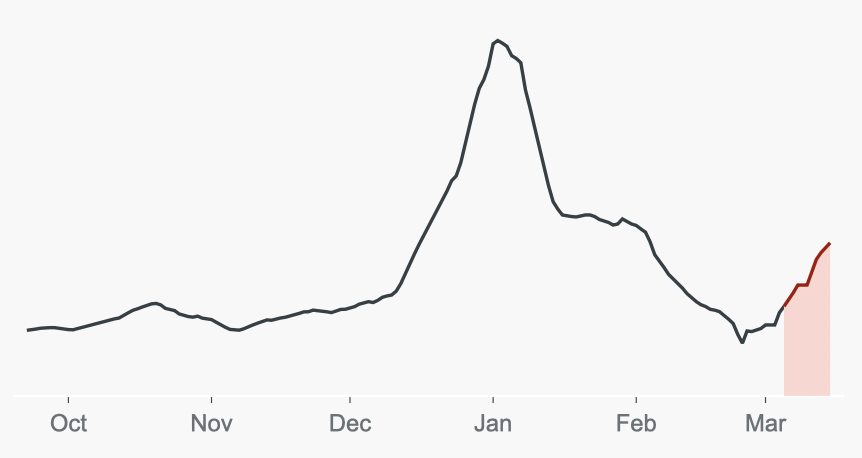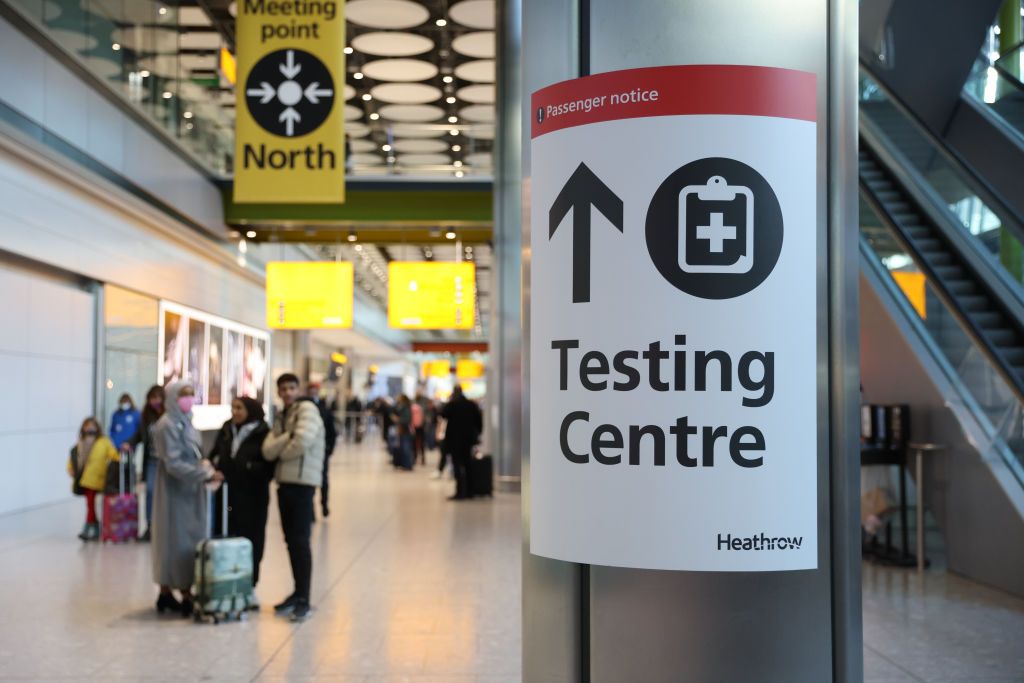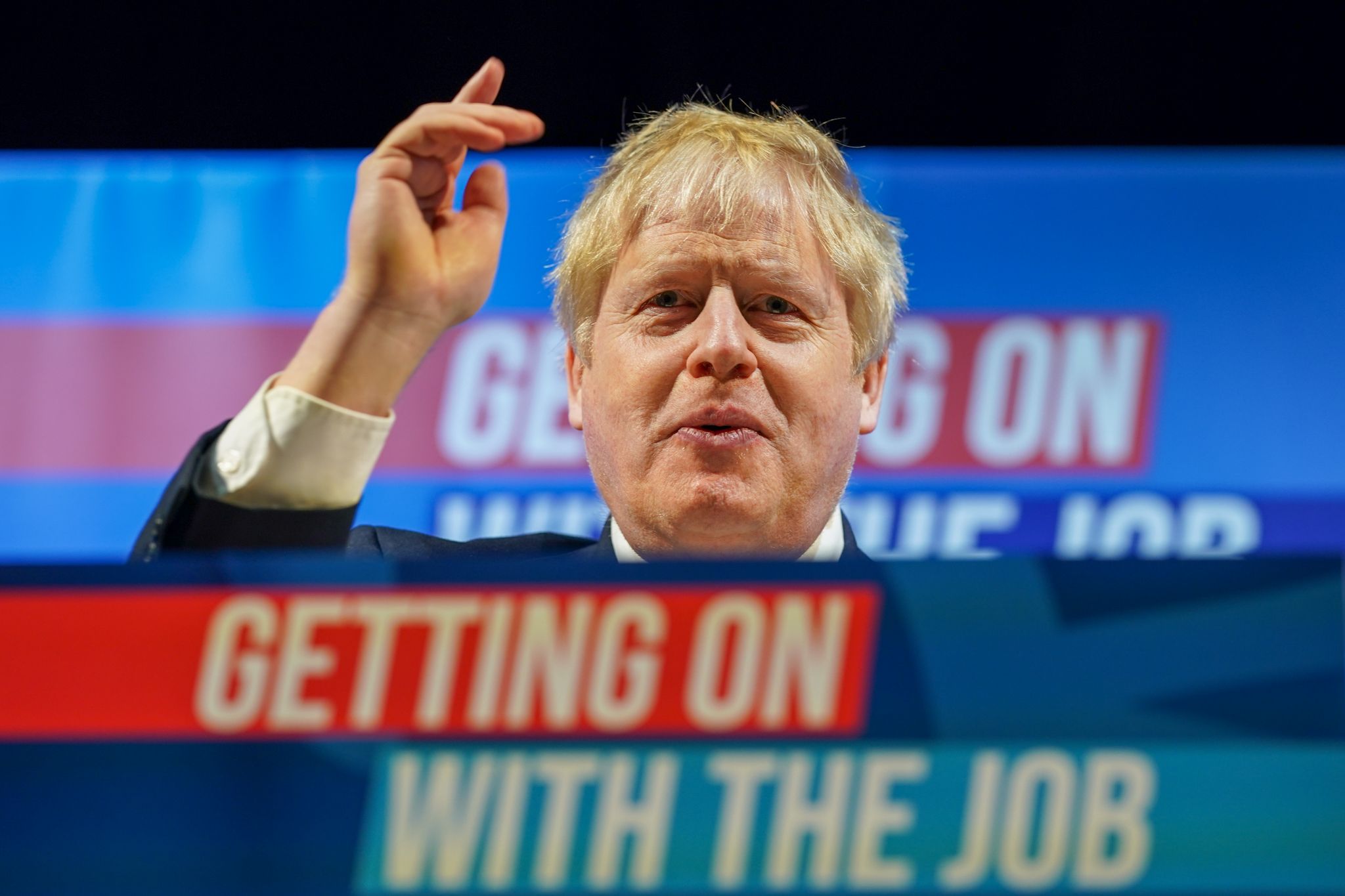

Share
21st March 2022
11:46am GMT

 Latest Covid cases data as of March 18 [Gov UK - Coronavirus dashboard][/caption]552,198 people tested positive in the last seven days - over 150,000 more than in the seven days before. Over 90,000 cases were reported on Friday alone.
In the most recent seven day period, 12,029 people were admitted to hospital with covid, and 752 people died - again both increases on the seven days of data prior. Though vaccines are still helping to stop severe cases.
[caption id="attachment_324279" align="alignnone" width="1024"]
Latest Covid cases data as of March 18 [Gov UK - Coronavirus dashboard][/caption]552,198 people tested positive in the last seven days - over 150,000 more than in the seven days before. Over 90,000 cases were reported on Friday alone.
In the most recent seven day period, 12,029 people were admitted to hospital with covid, and 752 people died - again both increases on the seven days of data prior. Though vaccines are still helping to stop severe cases.
[caption id="attachment_324279" align="alignnone" width="1024"] You no longer need a Covid test to arrive in the UK - vaccinated or not [Getty][/caption]Meanwhile, rules to reduce the spread of the virus continue to be dropped.
All covid travel rules ended on Friday, meaning you no longer have to take a test or fill in a form if arriving in the UK from abroad - even if you're not vaccinated.
In Scotland, where infections have risen for seven weeks in a row, nearly all covid rules have been scrapped today - though face masks will still be required in some indoor places until April. Wales plans to scrap all covid rules next week, while the vast majority of restrictions in England and Northern Ireland were lifted back in February.
https://twitter.com/sajidjavid/status/1505512855940046855
Those who are eligible for the booster will be offered the Pfizer or Moderna vaccine - though people aged between 12 and 18 will only be offered Pfizer. People will be contacted when it has been six months since they had their last dose.
Scotland and Wales have already launched their spring booster programmes under the same terms. In Northern Ireland, the Department of Health said it expects spring booster vaccinations to be completed in April and May.
[caption id="attachment_323988" align="alignnone" width="2048"]
You no longer need a Covid test to arrive in the UK - vaccinated or not [Getty][/caption]Meanwhile, rules to reduce the spread of the virus continue to be dropped.
All covid travel rules ended on Friday, meaning you no longer have to take a test or fill in a form if arriving in the UK from abroad - even if you're not vaccinated.
In Scotland, where infections have risen for seven weeks in a row, nearly all covid rules have been scrapped today - though face masks will still be required in some indoor places until April. Wales plans to scrap all covid rules next week, while the vast majority of restrictions in England and Northern Ireland were lifted back in February.
https://twitter.com/sajidjavid/status/1505512855940046855
Those who are eligible for the booster will be offered the Pfizer or Moderna vaccine - though people aged between 12 and 18 will only be offered Pfizer. People will be contacted when it has been six months since they had their last dose.
Scotland and Wales have already launched their spring booster programmes under the same terms. In Northern Ireland, the Department of Health said it expects spring booster vaccinations to be completed in April and May.
[caption id="attachment_323988" align="alignnone" width="2048"] Boris Johnson at the Tory Spring Conference in Blackpool [Getty][/caption]While the PM saying "we're going to need it" may sound concerning, the Joint Committee on Vaccination and Immunisation (JCVI) said vaccinating these groups is a "precautionary" move and doesn't mean there is any current danger to their health. Their protection from vaccines may simply be waning because they are vulnerable and it has been six months since they were last vaccinated.
Maggie Throup, the government's vaccines minister, told BBC: "We must ensure those at greatest risk of serious illness from Covid are protected and spring boosters will top up people's immunity."
Related links:
Boris Johnson at the Tory Spring Conference in Blackpool [Getty][/caption]While the PM saying "we're going to need it" may sound concerning, the Joint Committee on Vaccination and Immunisation (JCVI) said vaccinating these groups is a "precautionary" move and doesn't mean there is any current danger to their health. Their protection from vaccines may simply be waning because they are vulnerable and it has been six months since they were last vaccinated.
Maggie Throup, the government's vaccines minister, told BBC: "We must ensure those at greatest risk of serious illness from Covid are protected and spring boosters will top up people's immunity."
Related links:
Explore more on these topics: